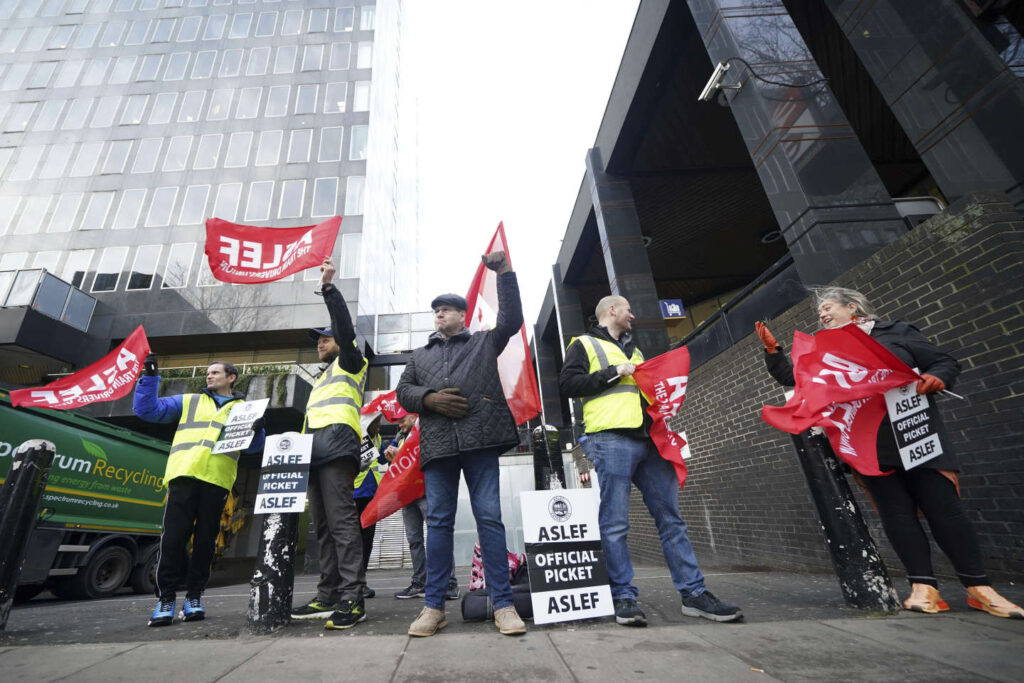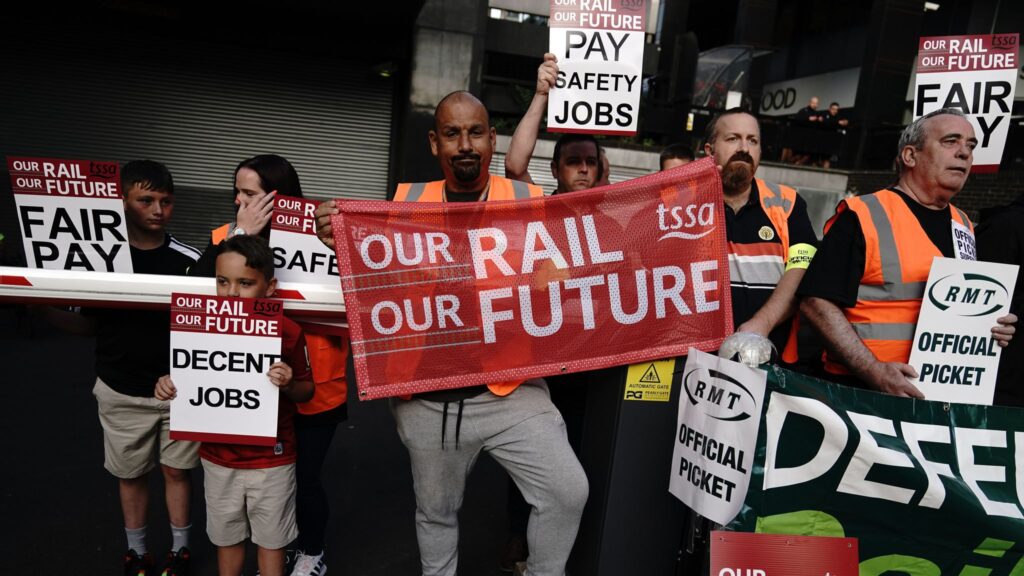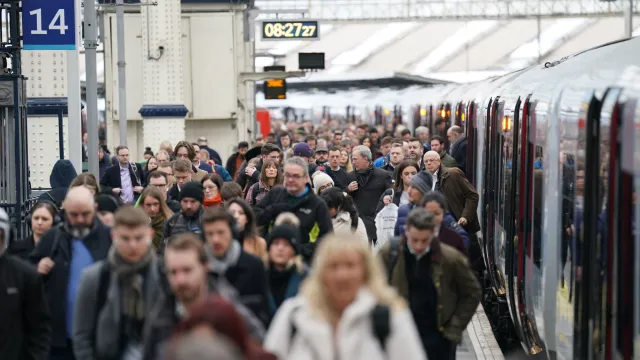More than 20,000 rail workers across England have embarked on a 24-hour strike in a decisive move that is anticipated to disrupt almost half of the services on affected rail lines. This extensive industrial action is part of an ongoing dispute between train operators and the Rail, Maritime and Transport (RMT) union, revolving around issues concerning jobs, pay, and working conditions.
The strike, which was initiated at midnight on Friday, has led to the cancellation of numerous train services operated by 14 train companies including Southern, Northern, Greater Anglia, and South Western Railway. The magnitude of the disruption is substantial, impacting daily commuters as well as coinciding with major events such as the iconic Notting Hill Carnival in London and the Reading and Leeds festivals, both of which are expected to draw in hundreds of thousands of attendees.

The RMT union has stated that the strike action is a direct response to the government’s proposal to reduce subsidies to the rail industry and impose new contracts on workers, which would ultimately lead to diminished pay, pensions, and safety standards. Mick Lynch, the General Secretary of the RMT, underscored the union’s commitment to the strike until a new agreement is reached that safeguards the rights and livelihoods of the workers. He accused both the government and train operators of jeopardizing the future of the rail network with their actions.

The current standoff between the RMT and the train operators highlights the deeply entrenched issues within the rail industry. As negotiations have failed to yield a resolution, the strike is emblematic of the frustrations felt by rail workers who perceive their rights and well-being to be at risk.
The impact of the strike is felt not only by commuters but also by the broader public, as it coincides with some of the year’s most significant events. The Notting Hill Carnival, a celebration of London’s Caribbean culture, and the Reading and Leeds festivals, renowned music gatherings, are expected to face disruptions due to the reduced rail services.

This significant industrial action raises pertinent questions about the balance between maintaining essential public services and addressing the concerns of workers. As the strike progresses and negotiations continue, it remains to be seen how the government and train operators will respond to the demands of the RMT and the broader rail worker community.
Resources:
1.https://www.bbc.co.uk/news/uk-66623948